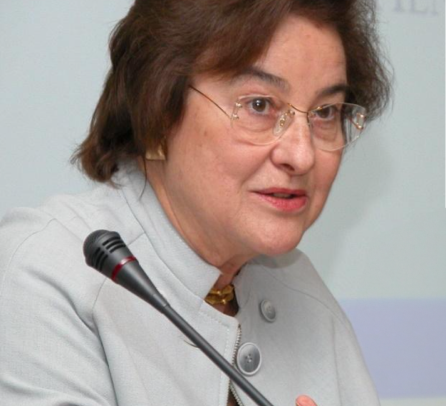Biography
Anthropologist
Born on September 19, 1930, in Araraquara, in the state of São Paulo, Ruth Cardoso obtained the following academic degrees from the Faculdade de Filosofia, Letras e Ciências Humanas of the Universidade de São Paulo (FFLCH-USP): a bachelor’s degree in Social Sciences (1952), a master’s degree in Sociology (1959) and a doctorate in Social Sciences (1972). In 1988, she obtained a post-doctorate from Columbia University in New York, USA.
She worked as a professor and researcher at USP; at the Centro Brasileiro de Análise e Planejamento (Cebrap); at the postgraduate course in Social Anthropology at the National Museum in Rio de Janeiro; at the Facultad Latinoamericana de Ciencias Sociales (FLACSO) and the Universidad de Chile, both in Santiago; at the Maison des Sciences de l’Homme Foundation in Paris; and at the University of California, Berkeley and Columbia University, both in the United States.
Ruth Cardoso’s full Curriculum-vitaeSocial activist
During the presidential term of her husband, Fernando Henrique Cardoso, she founded the ‘Comunidade Solidária’ Program and chaired its board (1995-2002). The initiative mobilized partnerships between non-governmental organizations, universities, companies and governments to build and disseminate innovative social programs. The actions developed were aimed at promoting citizenship and local development by training people and organizing the community.
Between 2002 and 2008, she chaired Comunitas, a civil society organization of public interest, created to ensure the continuity of the experiences of ‘Comunidade Solidária’.
Legacy
Her career combined teaching and research with leadership and activism in civil society. She defended her ideas and discussed her experiences in lectures, conferences, work meetings and gatherings in Brazil and abroad. She worked and interacted with businesspeople, entrepreneurs, social activists, politicians, artists, young people, men and women. She received several awards and decorations. Her main mottos were:
“Fighting poverty is not about turning people and communities into passive beneficiaries of social programs. Every person has skills and gifts. Every community has resources and assets. Fighting poverty is about strengthening capacities and leveraging resources.”
“Brazilian society today doesn’t expect everything from the state. It takes the initiative, innovates and experiments. Partnerships between multiple actors increase the efficiency and sustainability of social actions. Development is investment in human and social capital.”





